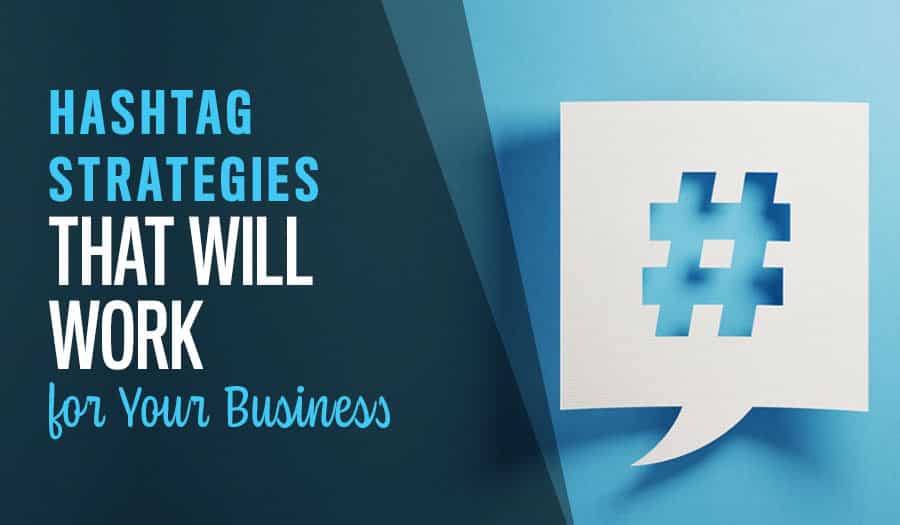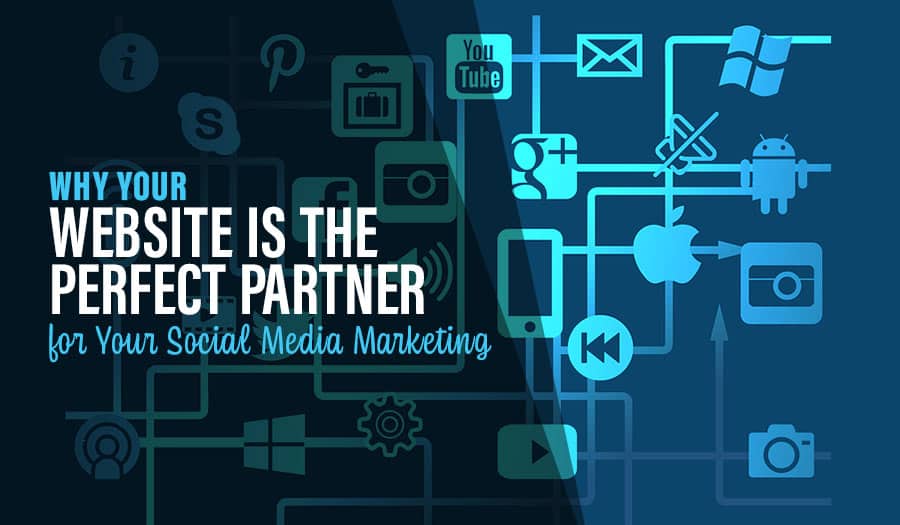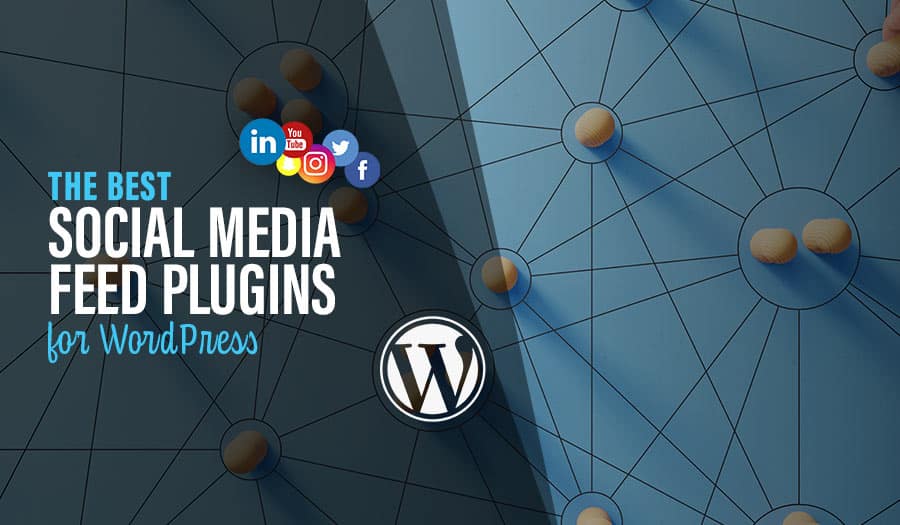Is your business using social media hashtags to its full advantage? Hashtags can boost traffic to your social pages and increase traffic to your website, so you might want to save them a seat in your next marketing planning session because whether you use them or not, your competitors probably will. Let’s review some Hashtag Strategies That Will Work for Your Business.
The first thing you need to know about hashtags is that they aren’t going away any time soon. Your target audience probably already uses them, and if your business has any presence on social media at all, then you should already be using your own branded hashtag – as an absolute minimum.
Hashtags can help you to:
- Boost a marketing campaign’s reach
- Build your company’s brand
- Improve your discoverability on social media sites
- Form a relationship with your audience and more!
Your brand can create a unique hashtag presence with just a little planning and forethought.
Targeted hashtags will get you results, whereas randomly adding 20 hashtags to a post without much thought is most likely not going to be worth the time it takes you. Using targeted hashtags in your social posts will place your content before users you may not have marketed to previously.
Hashtag Strategies That Will Work for Your Business
Are hashtags worth the hassle?
Instagram posts with one hashtag or more receive 12.6% more engagement. Before you go hashtag mad, remember that with around 60% of Instagram users sitting between the ages of 18-29, brands have to be savvy with their hashtag approach to reach this core demographic.
Instagram users, for example, are looking for interactions with brands that are caring, honest and can satisfy their needs, according to the Sprout Socia Q2 in 2017. When brands use hashtags correctly, the result is overwhelmingly positive.
Hashtags can help you engage your customers.
Hashtags can help you grow your brand, boost your following and generate a positive ROI, all while helping to create a brand community.
A brand hashtag is vital if you want user-generated content. After all, how will your happy customers spruik your brand on social media correctly without it?
When it comes to user-generated content, remember that being mentioned by a brand makes your customers feel valued (and can be quite the thrill). It is simple to ask a customer who has tagged your brand in their content if you can repost or share their content (while giving them credit.
Can you see how using and creating brand hashtags can be your answer to increasing your brand’s social visibility? While your happy customers’ own posts expose your brand to potential customers (their audience), sharing their positive posts with your audience forms user-generated content. This user-generated content can have the same positive effect on your brand as a good online review (which, in essence, it is).
You can use hashtags in a range of ways to promote your business, the simplest being to encourage your customers to post a selfie of themselves enjoying your product and asking them to tag your brand. Consciously choose hashtags that will encourage and drive customer action, participation and engagement.
For other ways of encouraging user-generated content, you can create online competitions requiring entrants to tag your business/brand in their online post/s to secure competition entry.
Categorically speaking, hashtags increase discoverability.
Hashtags are generally used to group content into categories.Out of all the social networks, Instagram probably does this best.
You can use Instagram hashtags to get your brand discovered by understanding the way hashtags are used to organise content:
For example, if an Instagram user on the Northern Beaches was searching for Hamptons-style interior design ideas, they may search: #hamptons and, when they did, they’d find that there’s around 1.5 million posts linked to that hashtag.
Now, if you were an interior design store owner who wanted to sell to that market, your posts would likely get lost if #hamptons was the only hashtag you used on your posts.
Let’s say this store owner, let’s call him Harry, whose business, “Harry’s Hamptons”, is an interior design store devoted to all things Hamptons style, (which, by the way is generally a clean white interior palette with a beachside vibe, typically found in Hamptons area of Long Island, New York), were to then look at the hashtags: #hamptonsinteriors and #hamptonsdecor
Harry would find that there are only a few thousand posts under each of those hashtags. By using these hashtags on his post, alongside #hamptons
Harry, our business owner, would have far less competition for views. Now, if Harry wanted to improve his discoverability further, he could add a branded hashtag #HarrysHamptons which, at the time of writing, had zero results on Instagram.
Harry could then research exactly where his target audience is searching and decide to carve out his own niche hashtag set to sit alongside the other, more popular hashtags.
Harry may decide to add #HamptonsStyleDeeWhy or #HarrysHamptonsDeeWhy to let his audience know where his physical stores are located. Our Instagram users living on the Northern Beaches would be far more likely to discover Harry’s store if Harry implemented a specific, niche and targeted approach to his choice of hashtags.
Choosing the right hashtag set for your business
To begin to discover your brand’s unique hashtag set, start with any main keywords you repeatedly mention in your posts and consider what words you would enter into the search bar if you were a potential customer looking to purchase what your firm offers.
Don’t forget to consider those all-important location-specific hashtags – you may be a #chiropractor but by also using the hashtags #monavale and #chiropractormonavale you are adding location-specific hashtags that can boost your discoverability.
It would be best if you considered a mix of branded hashtags (hashtags that are specific to your company or your unique products), and community hashtags, (general hashtags that don’t have anything to do with your business, brand or products ie. #sydney, #friyay, #makingmemories). Community hashtags will help to make your posts more discoverable, boost your audience and present your brand as more relatable.
Hashtags should always be relevant to your post and/or the image or video clip you are posting and as specific as possible.
When searching under a specific hashtag, users will be drawn in by your image above all else – so make sure your images are relevant, high-quality and, if possible, choose images that will stand out from the pack.
You might not get it right straight away, so be sure to utilise analytics tools for Instagram to measure the success of your Instagram posts so you know what’s working for you, and what’s not.
Deliver the feels
Consider which trending hashtags you may be able to use naturally. For example, you could use #christmaslist or #stockingstuffer in December for products that would make great Christmas giving, or you could use #backtoschool in January for stationery items, backpacks or school shoes.
You can also use tools such as Social Mention to discover which topics garner the most current attention.
You may find other trending events such as:
- World Wildlife Day (March 3)
- International Women’s Day (March 8)
- International Day of Happiness (March 20)
- World Creativity and Innovation Day (April 21)
- International Day of Families (May 15)
- Global Day of Parents (June 1)
- Earth Hour (March 30 2019, 8:30pm) or
- World Tourism Day (September 15)
This could be relevant to your posts. If not, there are a host of International Days and holidays that you could possibly incorporate into your business’ hashtag strategy and create content for.
Variety vs. Continuity
There will be some hashtags you will want to include with every post and some that will vary.
Variety can help you to reach a new audience, whereas continuity will keep all of your posts filed under one hashtag. Usually, businesses will choose their branded hashtag for this purpose.
Using a different hashtag for each separate marketing campaign can help you to monitor and track your marketing campaign’s results while ascertaining the reach of each campaign.
Do your homework
If you are going to begin using hashtags as part of your social media marketing strategy, there are a few things you should research first:
- Study the best-performing hashtags your competitors use. You can also begin using the sell, if applicable, to attempt to claw some of their followers – but don’t neglect to study the performance of your own hashtags and posts in the process.Try
- Try to carve out your unique niche set of hashtags by checking for uniqueness. Use search tools such as org to see how well-used your desired hashtag is – if it isn’t currently in use, congratulations! You get to create your own hashtag!
- Use trending hashtags only when relevant to your brand, post and audience. You want to avoid being seen as either irrelevant (or worse, as trying to cash in), particularly on trending topics that can be emotive for some users.
- Hashtags are generally used on Twitter, Instagram, LinkedIn and Facebook. Understand how the use of hashtags changes across different social media sites: for example, while Instagram is the ‘home of the hashtag’ and you can get away with using quite a few, use too many on Facebook at your peril. Take the time to discover the best practices for each social platform.
Tools to help
So how can you tell which hashtags are working for you, and which hashtags you should forget?
Many different tools are available to help you discover new and trending hashtags and track your own.
Here are a few you might want to use:
- Tagboard: Tagboard can track hashtags across Instagram, Facebook, Twitter, Google+, and more.
- Hashtracking: Head over to Hashtracking for Instagram and Twitter analytics.
- Hashtagify: Provides data on the most popular hashtags related to certain topics.
- Talkwalker: Shows reach, engagement, and type of content alongside hashtag brand monitoring data.
- RiteTag: A great resource for finding trending hashtags and keeping abreast of hashtag engagement, offering instant hashtag suggestions for images and content.
There are many reasons why your business should implement a hashtag strategy; when hashtags are used correctly as part of your business’s social media strategy, they can improve your connections on social media, boost traffic to your website, and strengthen overall consumer engagement with your content.
Consider the content of your posts and how it represents your brand. Take the time to structure your social media posts around delivering what customers love: honest, friendly, relatable and helpful content.
Hashtags will help your social posts (and ultimately, your business) to get noticed by a much wider social media audience, which should drive traffic towards your business’ website. Make sure that when they reach your website they find the same quality of content that grabbed their attention in the first place!
If you need help ensuring your website is up to scratch, take that next step and get in touch with Pixel Fish. We can arrange a time to sit down with you for a website planning session to gain a clear idea of the look and feel you envisage for your website and ensure your website’s navigation, social links and content are perfect.
Let Sydney’s leading Web Design Agency take your business to the next level with a Pixel Fish Small Business Website.
Check out some of our latest Website Design projects.
Further Information
10 WordPress Plugins to Speed Up Your Ecommerce Website
Top 3 Ecommerce Customer Service Tactics for your Website
9 Reasons to Use WordPress for Your E-Commerce Website
Further Information
Top 10 Steps to Start a Successful Online Store
What Is Google PageSpeed Insights and How it Can Improve Your Website
How to Successfully Balance UX and SEO for The Most Effective Website
10 Reasons Your Website Is Fundamental to the Growth of Your Business
Twitter Vs Facebook Vs Instagram Vs LinkedIn: Which is Right for You?
Facebook Reviews vs LinkedIn Reviews vs Google My Business Reviews
Why Displaying Social Media Reviews On Your Website Is Great For Business
How to Create a Landing Page for Your Small Business



